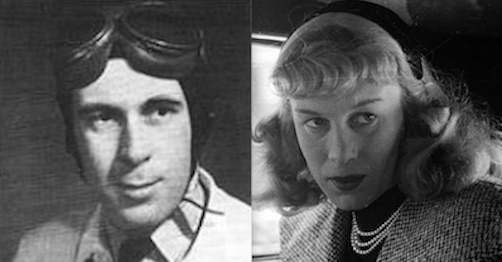
This week’s High Court judgement restricting the use of puberty blockers and all the hoo-ha since reminds me of someone I met a long time ago as a child of ten, when I read Roberta Cowell’s Story. The momentous nature of her gradual decision to change sex seems relevant.
More usually I would have read adventure stories back then, but this was on the shelf and something made me take it down. I remember first looking at the pictures: Robert as a World War Two fighter pilot and as a racing driver, both heroic occupations to a boy like me, and Roberta, also racing cars. I read it from cover to cover, straight off.
Robert was the first man in Britain to have gender reassignment surgery and become a woman. There was almost no support available to him and the social stigma was immense. The mental torment was the thing. It was easier to change his body than his mind, and a change of mind took time. It was surely the most difficult change that any human being could ever make.
I was gripped by Roberta’s story. At the time I had no understanding whatsoever of the subject and don’t believe I even knew what sexuality was. I feel fortunate to have read it when I did. I learnt a lot and perhaps avoided misconceptions I may otherwise have held. It’s not that I now believe in gender reassignment, I just don’t believe it’s wrong.
I would recommend Roberta Cowell’s Story to anyone for a lesson in bravery and strength. It can be found online if you look. Choosing the right pronoun to use is difficult here—she said so too. It’s her story, but his as well. I have long thought that the film of the book is overdue.
Roberta died in 2011. By coincidence, I learnt of this in a newspaper article written by my friend Matthew Bell for The Independent two years later. Remarkably, his was the first report of her death in any newspaper, and even her two children were unaware of her passing at the time. Had I known, I might have attended the funeral myself.
Reading Matthew’s account again now is sad, but it’s good to be reminded that someone who impressed me so at such an early age was eventually remembered, especially by a friend.
The challenges faced by this brave individual were beyond what most of us could match. Flying Spitfires in combat, taking a direct hit over enemy territory and crash landing, enduring harsh captivity by the enemy, eating raw cats to survive. These are no mean feats. Competing in a Grand Prix is likely something we would dream of but never achieve. How many men would have the balls for his ultimate act of courage?
Roberta’s story is one of strength but also a cautionary tale, and in respect of this week’s High Court judgement, I am in favour of it. It rules that only those above the age of 16 have the ability to consent to medical treatment and restricts the earlier use of puberty blockers. Such caution seems eminently sensible to me.
I think of what my mother taught me through her use of wise adages: It is better to be safe than sorry; measure twice, cut once; good things come to those who wait.